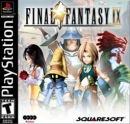Zucas said:
leatherhat said:
Zucas said:
Well first to settle a point, individual store managers DO NOT determine how much product their store gets. If people would think about this logically they would understand why this makes no sense. Managers don't require any form of higher education to obtain their job, so why would you put these people in charge of sales analysis of individual stores to gain trends to determine demand for the future. Please think for a moment. I'm not entirely sure, with the case of Gamestop for me, whether or not it comes from a district or a regional level, but in no way, shape, or form does the individual store have any control over the amount of product (aside from selling product).
Now, to get back to the original post, starting somewhere in the summer, we did start to see an increase in PS3 stock at my Gamestop I work at. Think in July. Only a couple of months before this had our stock become normal, as most early part of 2010 we didn't have PS3s at all. But from July till about October, we did obtain more and more PS3s than usual, despite not selling too many of them (don't sell many systems at all in the summer months anyways). So for the most part up until Black Friday, we had a large quantity of PS3s in stock with not a lot of demand. Now come Black Friday, we did sell a lot of them, but Wii and 360 were put into a sell out while PS3 just returned to normalcy.
What do I think of it? I don't think much of it at all. We tend to get more stock in right before the holiday season, although it doesn't usually happen until early October instead of late July. I think what caused this one for PS3 was the change from the 120 GB SKU to the 160 GB SKU. Not entirely sure if that is the answer, but I think that would explain the abnormal increase for the late summer months. Then obviously I would think the rest of the increases were just normal for holiday preparation. Did it seem a little bit more than usual or more than the other competitors? Yea maybe a little bit but I wouldn't have enough evidence to really say it is Sony channel stuffing. I mean obviously all of the big 3 have done this at least one time or another so it is to be expected, but I don't know off of this that we could say whether or not they are doing it.
Hope this helps, Infamous, in possibly figuring out the dilemma. If ya have anymore questions on things happening in my store, I'm glad to answer them.
|
Then how exactly do they know what amounts to give each store? There has to be some sort of accounting on the stores side so that the business would know how much to send. They could use educated guesses based on trends but surely on a store to store basis there would be anomalies that they wouldn't be able to predict. And surely if a store was so well stocked they wouldn't continue to receive shipments.
|
Well it isn't like all the sales data and stock are available only to the individual store. Higher ups in the company have access to those numbers.
But you are absolutely right that there are anomalies that only the store would know that they wouldn't be able to predict. That is why sometimes individual stores will get over or under stocked of certain products that defies what the numbers would say to do. For instance, recently with one of the PSP games (can't remember which one) , we weren't sent a small amount of copies that reflected sales numbers for PSP at our store, which like most have been rather dismal. But something numbers can't show, is that we did have a larger, loyal group of PSP owners who did shop regularly there. Sold out of the title rahter easily due to that. Now obviously people in the store would have known that and requested more of the product or the buyers themselves could have helped out by reserving more which does help get more stock. So won't say it is a perfect system, but that is how it works, at least for Gamestop. I would assume for most other retail chains as well as the manager just isn't required to be of a high enough education to make those decisions.
And I would disagree with the last point. Being well stocked doesn't necessarily mean you won't receive more shipments. One case this year has definitely been with Medal of Honor. We received a large first shipment, which sold modestly. Then we received a rather unusually large second shipment of the game as well. Caused us to have a relatively large amount of the title when early sales didn't represent it. Why? My guess has been shared by others I know. One being EA vastly overshipped and stores over bought, which is reflected by the unanimous Black Friday deals on the title. Then a part two to that I would suspect is channel stuffing. EA can have a lot of pull with retailers as it has a few titles under its belt that retailers are going to really want. Therefore deals are struck for the success of both sides. It gets a dirty name, but it happens. So full warehouses are not good for a retailer, which is why they stuff as much stock as possible in individual stores where they can sell.
So yea it just doesn't happen at the individual store level and there are lots of reasons why certain titles are over and under shipped or over and under stocked in individual stores. Politics of the business world I suppose. However, I don't think this is the case with the PS3 as being suggested in the topic as I explained in the post, but it does happen. Hope that kinda helps to describe it.
|




















